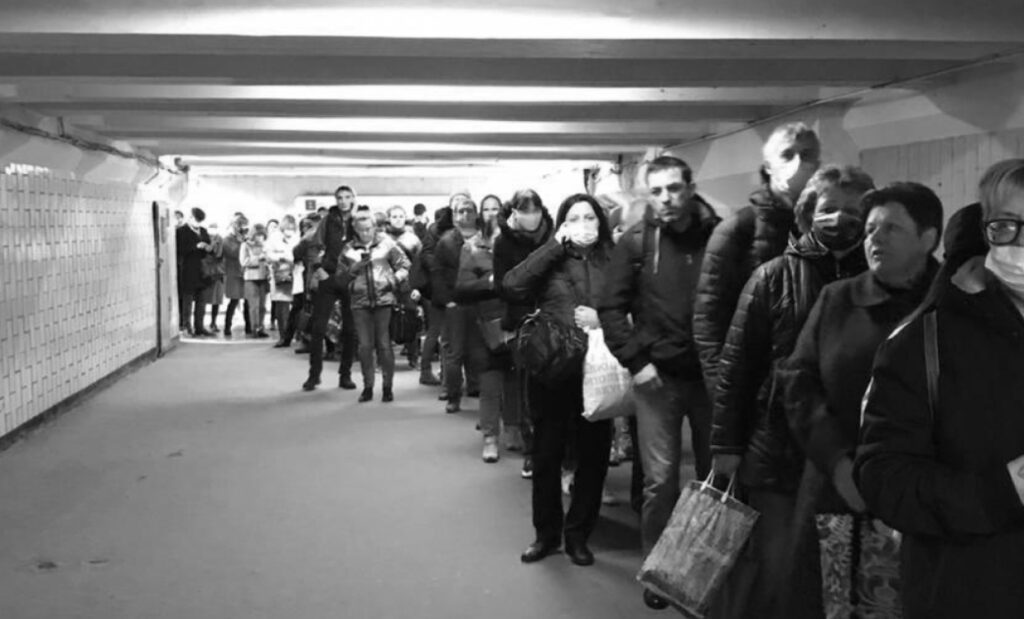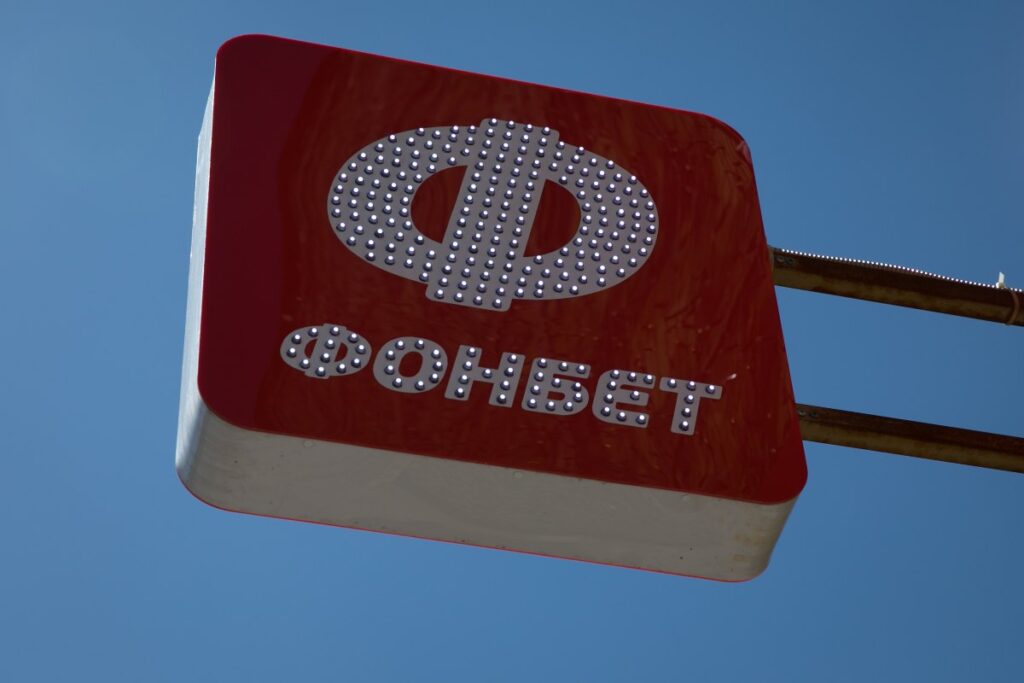
Digital permit chaos
Hello! This week our top story is the chaotic rollout of Moscow’s lockdown permit system that created big crowds at subway entrances. We also look at how wealthy Russians are coping with the pandemic and the criminal connections of a bookmaker that got itself in line for anti-crisis handouts from the state.
Moscow’s digital permit rollout is a shambles
Since the beginning of the coronavirus pandemic, Moscow Mayor Sergei Sobyanin has been accruing political capital. He introduced lockdown earlier than the federal authorities (here we explain why) and repeatedly urged people to take the epidemic seriously. But his heroic image crumbled this week when the introduction of a new system of digital permits for Muscovites created more confusion than clarity.
- A permit system in the Russian capital was rolled out Wednesday. It means that anyone wanting to travel by public transport, or in a car, requires a permit, which is obtained via an online form, SMS, or telephone call.
- What particularly infuriated Muscovites about the new system were the long lines that formed at the entrances to the subway. It turned out that permits were being checked by police officers at subway entrances and, as a result, many queues of 50 meters or more formed — with no sign of social distancing. Sobyanin blamed the police, and the next day the lines disappeared. But they will not be forgotten. Russia reported Saturday 4,785 new COVID-19 cases in the previous 24 hours, a new daily record that takes total cases to 36,793. Officially, 313 people have died. We will never know how many new cases were the result of the subway queues.

- The first day of digital permits was also marked by huge traffic jams on roads into Moscow, where passes were being checked manually. And there was confusion on the taxi market. As you can’t ride a taxi without a pass, City Hall said taxi drivers should do the checking — but taxi companies were given just a few hours warning and managers at several taxi firms complained to The Bell that they have now idea how to implement such a system.
- Checks by law enforcement officers are likely to be reduced next week, in favor of digital control. City Hall announced (Rus) Saturday that thousands of traffic cameras in Moscow will be used to automatically issue fines to vehicles without permits. And from Wednesday, public transport will only be accessible to those using tap-in tap-out cards, which must be linked to your permit.
Why the world should care
Enforcement of Moscow’s lockdown is being ramped up. The authorities said (Rus) Thursday that 13,000 police officers are currently patrolling the streets, and $670,000 worth of fines for violating the lockdown have been issued in just one week.
How wealthy Russians are coping with coronavirus
The coronavirus has been a test for everyone, but some Russians have more options than most. The Bell investigated (Rus) how Russia’s wealthiest citizens are dealing with the pandemic: self-isolating in mansions, buying ventilators and fueling a black market in tests.
- One of Russia’s top-100 richest people told The Bell he flew to Switzerland on March 30, three hours before the border was closed. “I just woke up and realized I wanted to be in a country where there are more brains,” he said. He is not the only Russian tycoon in Europe. The former owner of fertiliser giant Uralkali, Dmitry Rybolovlev, is also based in Europe (according to flight tracking data and a source close to him), while former Brooklyn Nets owner Mikhail Prokhorov is apparently holed up near France’s picturesque Lake Bourget just south of Geneva.
- Planes owned by billionaire Viktor Vekselberg (a college friend and a business partner of Soviet-born Len Blavatnik) and the billionaire founder of conglomerate AFK Sistema, Vladimir Yevtushenkov are both stuck in Basel. However, both businessmen are in Moscow, according to the sources.
- At the same time, many members of the super wealthy with homes in Europe returned to Russia. There were people both leaving and arriving at the terminal for business jets in Moscow’s Vnukovo Airport, the head of Vnukovo told The Bell.
- In Moscow, the super-rich rushed to Rublyovka. Since the nineties, this has been the most elite area of Moscow Region and is full of the second homes of state officials, criminals and billionaires. It has lost some cache in recent years, but is ‘blossoming’ because of the coronavirus. The demand for mansions has jumped fivefold since the beginning of the pandemic — and so have prices. The average monthly rent in the neighbourhood is about $14,000, and demand is now outstripping supply.

one of the mansions to rent on Rubloyvka
- Rich people do not trust the state healthcare system. As a result, they have been buying up ventilators. Pretending to be a buyer, The Bell phoned 5 medical equipment dealers but couldn’t obtain a ventilator at short notice (the price for one is about $27,000). The earliest delivery date was May.
- Many of those who can afford it are trying to hire personal doctors who would be able to use ventilators, several top Moscow doctors told The Bell. One Moscow-based doctor with wealthy private clients recalled how one person came to a private medical center, “put down around a million dollars and said: ‘I want to reserve this wing with its ventilator exclusively for my own use’”.
- As soon as the coronavirus took hold in Russia, the wealthy began to buy up stores of tests, which led to a black market, according to the owner of a Moscow clinic. Russian singer Stas Mikhailov even did a black market test live on Instagram.
- But there is little getting away from the realities of lockdown. “People on Rublyovka are depressed: it’s still house arrest, even if it’s in a luxurious villa,” said one Russian businessman in Switzerland.
Why the world should care
The irony of the situation for Russia’s rich is that their survival depends on the quality of the system as a whole – a system they do everything to avoid. Doctors interviewed by The Bell said that personal ventilators and sophisticated tests will not necessarily save anyone from COVID-19. Only systematic measures like lockdown, mass testing and a functional healthcare system can help. “You can’t build such things for yourself in a couple of days when [the healthcare system] has been falling apart for 20 years,” one doctor said.
The bookmakers that almost wangled anti-coronavirus support
One of the measures to help the economy during Russia’s epidemic is state support for systemically important companies. A list of the firms with this designation was published last week and included Fonbet, the largest and the oldest bookmaker in Russia. The Bell has looked at Fonbet’s links to some of the biggest gangsters of the 1990s.
- It is not entirely clear how Fonbet got on the list. According to one theory, the reason was technical: only revenue, employee numbers and tax payments were taken into account by those drawing up the list. However, market players told The Bell that Fonbet had used its connections to get on the list. Eventually, the Ministry of Finance protested and Fonbet also asked to be removed from the list. The company was excluded from an updated list published Tuesday.
- Set-up in the 1990s, Fonbet was the first bookmaker to accept bets during matches, which quickly made it a market leader. In 2013, a criminal case was opened against the company over illegal online betting and its offices were searched by law enforcement officers, who broke down the doors and used smoke grenades.
- The company’s shareholder structure changed in 2013, and again in 2017 when 66 percent of Fonbet was transferred to a mysterious offshore company in Cyprus. After this, the bookmaker flourished with its revenue more than doubling the following year.

- It’s unclear who controls Fonbet, but we do know some of the minority shareholders. They include former State Duma deputy Stanislav Magomedov, who also owns a bath house complex on Rublyovka. One of Magomedov’s partners is the son of Sergei Lalakin, nicknamed Luchok (‘a little onion’), a high-profile participant in the criminal wars of the 1990s. Lalakin was thought to be the head of Podolsk criminal syndicate (formerly one of the most powerful criminal gangs in the country).
- Another of the minority shareholders is Sergei Tetruashvili. Little is known about him, but his brother David was a well-known entrepreneur in the 2000s. David Tetruashvili founded perfume chain Brocard, which supplied Arbat-Prestige, a large cosmetics retailer. Arbat-Prestige is linked to Semyon Mogilevich, reputed to be Russia’s most notorious mafia boss and one of the FBI’s most wanted people.
Why the world should care
One could see the story of Fonbet inclusion on Russia’s list of systemically important companies as a symbol of the return of the 1990s amid the coronavirus crisis. As the economic situation worsens, we may see more and more names from this period.



